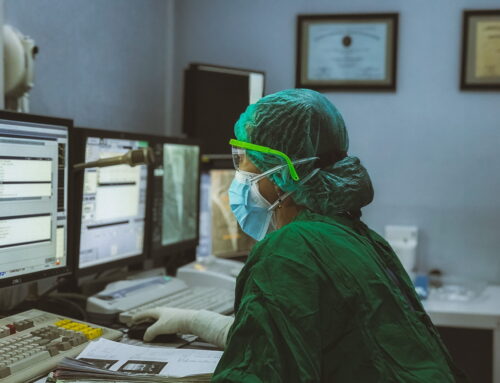Introduction
In recent years, the healthcare industry has witnessed the transformative impact of artificial intelligence (AI) across various domains. One area where AI is making significant strides is in healthcare market research. By harnessing the power of AI, healthcare market researchers can uncover valuable insights, enhance decision-making, and drive industry growth. In this article, we explore the intersection of healthcare market research and AI, highlighting the benefits and implications for stakeholders in the field.
- Advanced Data Analysis and Predictive Modeling
Traditional market research methods often involve extensive data collection and analysis. AI brings a paradigm shift by automating and expediting this process. AI-powered algorithms can process vast amounts of structured and unstructured data from diverse sources, including electronic health records, social media, surveys, and patient feedback. By analyzing this data, AI can identify patterns, correlations, and trends that might go unnoticed by human analysts alone. Predictive modeling algorithms can then generate accurate forecasts, empowering healthcare organizations to anticipate market shifts, consumer preferences, and emerging opportunities.
- Personalized Customer Insights and Targeted Marketing
One of the significant advantages of AI in healthcare market research is its ability to deliver personalized customer insights. By leveraging machine learning algorithms, AI can segment and profile consumers based on their demographics, behaviors, and preferences. This enables healthcare organizations to tailor their marketing strategies and communication efforts to specific customer segments. With personalized messaging, targeted campaigns, and precise advertising, healthcare providers, pharmaceutical companies, and medical device manufacturers can better engage their audience, build stronger relationships, and improve overall customer satisfaction.
- Real-Time Monitoring and Competitive Intelligence
In a fast-paced healthcare landscape, real-time monitoring and competitive intelligence are crucial for success. AI-powered tools can continuously monitor market trends, competitor activities, and consumer sentiment across various channels. By aggregating and analyzing this real-time data, healthcare organizations can gain a competitive edge. They can quickly identify emerging trends, evaluate competitor strategies, and make data-driven decisions in near real-time. This agility allows businesses to adapt their offerings, marketing campaigns, and business models promptly, positioning themselves as market leaders.
- Drug Discovery and Development
AI is revolutionizing the pharmaceutical industry by expediting the drug discovery and development process. By leveraging machine learning algorithms, AI can analyze vast amounts of scientific literature, clinical trial data, and genomic information. This enables researchers to identify potential drug targets, predict drug efficacy, and optimize clinical trial designs. AI can also facilitate the repurposing of existing drugs, leading to cost savings and accelerated timelines. By incorporating AI into healthcare market research, pharmaceutical companies can streamline the development of new therapies, enhance patient outcomes, and address unmet medical needs effectively.
- Ethical Considerations and Data Privacy
While AI holds immense potential, it is vital to address ethical considerations and data privacy concerns. Healthcare market researchers must ensure that data collection and analysis adhere to stringent privacy regulations and ethical guidelines. Transparent and responsible AI practices are necessary to maintain patient trust and protect sensitive information. Collaboration between AI experts, healthcare professionals, and regulatory bodies is essential to establish frameworks that safeguard patient privacy while harnessing the power of AI for healthcare market research.
Conclusion
Artificial intelligence is revolutionizing healthcare market research by empowering organizations with advanced data analysis, personalized insights, real-time monitoring, and accelerated drug discovery. By leveraging AI capabilities, healthcare stakeholders can make data-driven decisions, optimize their strategies, and navigate the ever-evolving healthcare landscape with confidence. However, it is crucial to strike a balance between harnessing AI’s potential and addressing ethical considerations to ensure patient privacy and trust. As AI continues to evolve, its integration with healthcare market research promises to reshape the industry, driving innovation, improving patient outcomes, and fostering growth.



